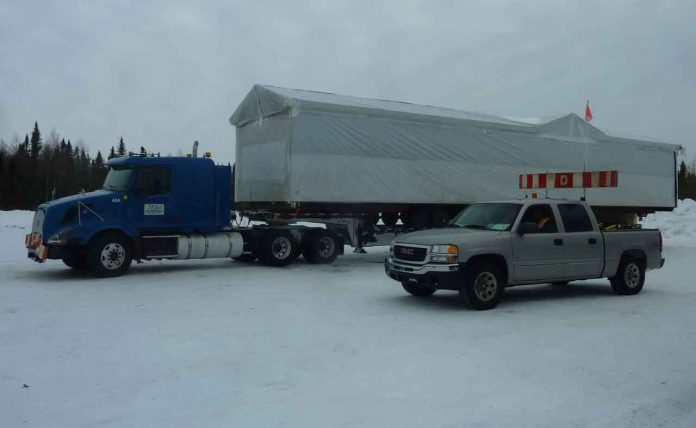
THUNDER BAY – NEWS – The Chiefs of Nishnawbe Aski Nation (NAN) have issued a State of Emergency, citing the critical impact of unusually warm winter weather on the seasonal winter road network, crucial for the connectivity of NAN’s 49 member First Nations.
Grand Chief Alvin Fiddler highlighted the perilous situation, stating, “The winter road season is at risk due to unseasonably warm temperatures, rendering the roads dangerously unsafe. This jeopardizes the safety of our community members and commercial drivers, who depend on these roads for essential travel.” He stressed the reliance of these communities on the winter roads for the delivery of vital goods and announced immediate plans to seek support from federal and provincial Treaty partners for freight and road repair subsidies, aiming to expedite alternative air transport arrangements.
The declaration, supported by the Chiefs-in-Assembly gathering in Thunder Bay, urges action from Indigenous Services Canada (ISC), the Ontario Ministry of Northern Development (MND), Ontario Ministry of Transportation (MTO), and Indigenous Affairs Ontario (IAO) to provide the necessary subsidies for fuel and essential non-perishable goods to the affected NAN First Nations.
Thirty remote NAN communities rely on the winter road season for the receipt of crucial supplies, including fuel, equipment, and materials for housing and infrastructure projects. Additionally, NAN represents communities with road access requiring urgent repairs.
With winter road funding in Ontario being a shared responsibility between ISC and MND, the situation underscores the disproportionate effects of climate change on First Nations people. For urban areas, a warmer winter might mean less snow; for NAN First Nations, it’s a threat to their way of life.
The ice thickness, crucial for supporting heavy loads and large shipments across water crossings, has been significantly compromised this season. Effective ice capping, dependent on substantial drops in nightly temperatures, has been hindered, while a scarcity of snow complicates the process of packing down smaller creeks without permanent water crossings.
The State of Emergency calls for immediate collaboration and support to address this pressing issue, ensuring the safety and well-being of NAN communities amid these challenging conditions.






